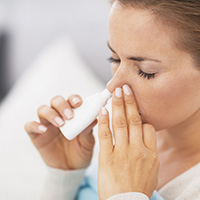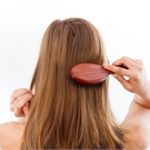
Protecting your skin from the sun’s ultraviolet rays prevents skin cancer, yet many people like the look of tanned skin. In the past we’ve reported on the damage caused by tanning booths (February 2017, February 2015). Self-tanning lotions contain dihydroacetone (DHA) and are safe to apply to the skin, as are spray tans – as long eyes and nose are covered to prevent irritation/inhalation. Recently nasal sprays containing a product called Melanotan have become available and have been promoted on certain social media platforms. They purportedly work by stimulating pigment producing cells (melanocytes) to produce more pigment (melanin). Unfortunately, Melanotan hasn’t been shown to be safe and is not FDA approved. Some of the side effects include vomiting and neurological symptoms. The bottom line: stay away from tanning nasal sprays.
MAY IS SKIN CANCER AWARENESS MONTH: For information on how to recognize skin cancer and protect your skin to reduce your risk of developing skin cancer, see our previous blogs under the category “skin cancer prevention” at www.derm90210.com and visit spotskincancer.org.


